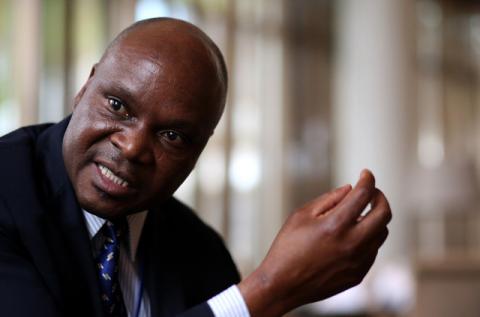Government could still effect the ban on the export of unbeneficiated platinum next year when the ultimatum given to miners expires this year, if miners are slow to set up a precious metals refinery.
This is despite the platinum producers having committed $100 million for a refinery, an amount which falls way below Government expectations.
Mines and Mining Development Minister Walter Chidhakwa said he expected "real action" from the mining companies regarding the establishment of the refinery.
Minister Chidhakwa said this in an interview last Friday after the Chamber of Mines' annual general meeting and conference held at Elephant Hills Resort in Victoria Falls from May 22 to May 24 2014.
"I want to see real action on the ground," Minister Chidhakwa said, adding the mining firms had not briefed him about their plans prior to making the announcement at the AGM and conference last week. He said the action by miners was "not enough".
Chamber of Mines of Zimbabwe president Mr Alex Mhembere said last Friday that platinum producers had pooled $100 million to start the process of setting up beneficiation facilities in the country.
Former Mines and Mining Development Minister Obert Mpofu in 2012 gave platinum miners a two-year ultimatum to set up a refinery in the country or else Government would ban the export of raw platinum.
Zimbabwe, which is home to the world's second biggest platinum reserves after South Africa, exports matte for refining in neighbouring South Africa.
Presently, Zimbabwe has three main platinum producing mines namely Implats' subsidiary Zimplats, Aquarius and Implats' 50-50-owned Mimosa and Anglo American's Shurugwi based Unki Mine.
While the producers have committed $100 million to the project, setting up a refinery would gobble up an amount in the region of $3,5 billion to $4 billion.
"Building only a base metal refinery would require something in the region of $1,6 to $1,8 billion," he said.
A base metal refinery only adds value up to 60 percent concentrate of platinum group metals (PGMs), which are then fed to a precious metal refinery.
Government has already slapped platinum producers with a 15 percent levy on raw platinum exports in a bid to nudge the producers to beneficiate and add value to the country's platinum.
This adds to the 10 percent royalty on gross proceeds and numerous other charges to which the platinum mining companies are already liable.
The push towards beneficiation and value addition falls in line with Government's position to optimise benefits from the country's extractive resources.
Government wants beneficiation and value addition of minerals to derive maximum value required supporting other economic activities when the finite minerals resources have mined out. In addition, there also is the general feeling in Government that producers understate the volume and value of platinum they send out for refining.
There have been numerous engagements, but little progress, between Government and platinum producers on how to proceed with the beneficiation and value addition agenda of the country.
But the process has taken long at the discomfort of Government, which contends that huge amounts of potential revenue are lost due to the export of low value unbeneficiated minerals. Zimbabwe generated $2,3 billion from minerals last year.
In the past, the producers have argued that the country does not have critical mass as yet to justify the establishment of a precious or platinum refinery.
Zimbabwe is currently producing about 430 000 tonnes of platinum annual and miners once said the country needed 500 000 tonnes to justify a platinum refinery.
- The Herald
 Concern over Masvingo black market
Concern over Masvingo black market  Kenya declares three days of mourning for Mugabe
Kenya declares three days of mourning for Mugabe  UK's Boris Johnson quits over Brexit stretegy
UK's Boris Johnson quits over Brexit stretegy  SecZim licences VFEX
SecZim licences VFEX  Zimbabwe abandons debt relief initiative
Zimbabwe abandons debt relief initiative  European Investment Bank warms up to Zimbabwe
European Investment Bank warms up to Zimbabwe  Young Investment Professional (YIP) Graduate Programme 2019
Young Investment Professional (YIP) Graduate Programme 2019 











 Young Investment Professional (YIP) Graduate Programme 2019
Young Investment Professional (YIP) Graduate Programme 2019
Editor's Pick